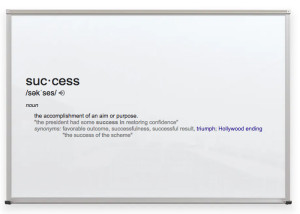What does it mean to be saved and why do you believe in the death and resurrection of Christ? What makes you think it’s true and what difference does it make?
Saying that you were, “…brought up in a Christian home,” doesn’t really answer the question. Nor does it mean much when you say that you’re “Catholic.” You’re not explaining anything as much as you’re just labeling yourself with a generic sticker and perhaps hoping that no one asks you any more questions.
Maybe?
Here’s the thing… 1 Peter 3:15 says:
But in your hearts revere Christ as Lord. Always be prepared to give an answer to everyone who asks you to give the reason for the hope that you have. But do this with gentleness and respect, (1 Peter 3:15)
In other words, be ready to sound intelligent if someone asks you what you believe and why you believe it.
So, what does it mean to be saved?
Executive Summary
In order to ensure we’ve got something we can easily remember when we’re done, let’s break this down into four segments:
What Does it Mean?
You’ve been changed. The thing that drives the way you think, act and feel has been fundamentally altered. A relationship with Christ is not an add-on or a plugin. It’s an entirely new Operating System. This is what Paul was referring to in 2 Corinthians 5:17:
17 Therefore, if anyone is in Christ, the new creation has come: The old has gone, the new is here! (2 Cor 5:17)
How Do You Get it Done?
You believe.
That’s it.
It’s a gift (Rom 6:23). You don’t earn it (Eph 2:8-9). You simply accept the Reality of Christ’s death and resurrection and His Identity as the Son of God (Lk 23:41-43).
You see that in Romans 10:9-10:
9 If you declare with your mouth, “Jesus is Lord,” and believe in your heart that God raised him from the dead, you will be saved. 10 For it is with your heart that you believe and are justified, and it is with your mouth that you profess your faith and are saved.
It’s important to realize, though, that the “belief” the Bible is referring to is the kind that goes beyond just forming the words on your tongue. It’s the difference between saying you’re in love and actually being in love. When you believe something in your heart, it affects your behavior (Lk 6:43-45) and the way you think. So, in this instance, the kind of belief that’s being referred to here is that the empty tomb isn’t just a historical event, it’s a personal reality.
What Actually Happens?
When you cross that line and you believe that Christ’s tomb is empty, God takes all of the intangibles that constitute Who and What He is (the Holy Spirit) and integrates them into your character.
That’s what happens when you believe:
Having believed, you were marked in him with a seal, the promised Holy Spirit, who is a deposit guaranteeing our inheritance until the redemption of those who are God’s possession—to the praise of his glory. (Eph 1:13-14 [see also Ezekiel 36:26-27; Rom 8:9; 1 Cor 3:16; 6:19])
And this is just a part of what it means to be redeemed! The long and short of it is, you have been made alive.
As a sinner, you are a spiritual corpse:
As for you, you were dead in your transgressions and sins, 2 in which you used to live when you followed the ways of this world and of the ruler of the kingdom of the air, the spirit who is now at work in those who are disobedient. (Eph 2:1-2)
You are dead, spiritually (Rom 8:8). When God forgives of your sin, at that point you become alive.
But because of his great love for us, God, who is rich in mercy, 5 made us alive with Christ even when we were dead in transgressions—it is by grace you have been saved. (Eph 2:4-5)
You can’t hope to justify yourself by suggesting that “I’m not that bad. (Is 64:6)”
You’re dead.
This is so much more and at the same time so much simpler than what’s represented by your record of wrongs (Jas 2:10).
From a spiritual perspective, you’re not breathing.
What makes sin so heinous is that it’s not just the physical consquences of the sin as much as it’s Who you’re sinning against (2 Sam 12:13; Ps 51:4; Rom 3:23).
Every sin, regardless of how serious or incremental it may appear, requires you to go up to God as He’s sitting on His Throne and telling Him to get out of your chair (1 Sam 15:23 [all sin is a rebellion against God’s Authority]).
It’s belligerent, outrageously rebellious and, ultimately, lethal (Rom 6:23).
It’s not something you can offset by trying to be more noble (Eph 2:8-9; Titus 3:5). Every human being, apart from God’s grace, is a lifeless body from a spiritual standpoint (Ps 143:2; Ecc 7:20; Rom 3:9-20).
The only thing you contribute to your salvation is the sin that makes it necessary. By forgiving you of your sin, you’re now not only blameless , instead of being a spiritual corpse, you now have a spiritual pulse which is indicated by the Holy Spirit now residing within you (Eph 1:7; Acts 2:38).
And that’s what it means to saved.
What Does it Look Like?
From an eternal standpoint, being saved boils down to being confident. From a practical standpoint, being saved gives you access to a collection of Divine Resources that enable you to be excellent in everything you do, think and say (Ps 19:14).
Confidence and Excellence.
Now let’s do a little deep dive into all this!
Here we go…
I) What Does it Mean?
The bottom line is that you’ve been changed. 2 Corinthians 5:17 says:
17 Therefore, if anyone is in Christ, the new creation has come: The old has gone, the new is here! (2 Cor 5:17)
Everything that drives the way you think, act and feel has been fundamentally and permanently changed by God having integrated His Character into yours. While there’s a lot of practical theology that can be unpacked in order to fully appreciate just how amazing and transformational God’s grace truly is, that’s the bottom line. You have been changed, you are not the same person. It’s not that you’ve changed your mind as much as Christ has changed you. Whereas before you processed yourself and the world around you according to your personal experiences and life lessons, now you have access to the same Perspective and Strength that raised Christ from the grave (Eph 1:17-21).
But how do you get there? How can you experience this change?
II) How Do You Get it Done?
A) The Best Place to Go
The best place to go looking for the answer is the Word of God. Otherwise, you risk being told something that may be in line with someone’s tradition, but not necessarily consistent with the Truth. So, let’s start with Romans 10:9-10:
9 If you declare with your mouth, “Jesus is Lord,” and believe in your heart that God raised him from the dead, you will be saved. 10 For it is with your heart that you believe and are justified, and it is with your mouth that you profess your faith and are saved. (Rom 10:9-10)
The first part seems almost too easy. “If you declare with your mouth…” How many times have you heard someone claim to be a Christian by simply saying, “I was brought up in a Christian home,” or “I’m a member of the Baptist church down the road.” While being a part of a church is certainly a part of an active relationship with Christ (Heb 10:24-25), simply forming an affirmative disposition when it comes to your regard for Christ’s death and resurrection is only a part of what’s involved.
Consider what it says in James:
You believe that there is one God. Good! Even the demons believe that—and shudder. (Jas 2:19)
Now why is that important?
Because if the demons believe in the death and resurrection of Christ – and they’re obviously not going to heaven (Rev 20:7-10) – paying lip service to the first Easter morning as a historical event doesn’t qualify you as being a Christ follower in that the foot soldiers of Satan believe that Christ rose from the grave as well.
It has to show up in your actions and your mindset which is represented in the second part of Romans 10:9-10. You need to believe it in your heart.
B) Your Heart
However you want to envision that part of you that drives the way you think, act and feel – whether you want to think of it as your, “personality,” or your “soul” – the important thing that needs to be established is that it’s more than just a mindset or a mood. It’s what makes you the person that you are. The Bible calls that your, “heart.”
When you believe something in your heart, you are not just agreeing with a particular truism. It impacts the way you spend your time and your resources. It’s kind of like being in love. Saying that you love someone and actually being in love with them illustrates the difference between merely forming the words on your tongue and being passionately committed to the welfare and happiness of the one you adore.
When you acknowledge the death and resurrection of Christ in that way, it’s no longer just a historical event as much as it’s a personal reality. He’s not just the “King of kings.” He’s your King. Nor is He just the Savior of the world as much as He’s your Savior. You’re not just seeing Him as a distant deity, you’re like Thomas when he took a knee and said, “My lord and my God.” At that point, God responds by installing His Character into your heart.
Remember this too: Satan believes in God. He was there to see Him die and the devil saw Christ rise from the grave. This is why believing in your heart is so crucial. Even thought it may sound a bit poetic, it’s an absolutely crucial aspect of your approach because Satan isn’t going to heaven. Believing something to be true doesn’t really mean anything unless you it manifests itself in your behavior.
I can believe that eating right and exercising is important, but it doesn’t really resonate as a “truth” if I never go to the gym or pay attention to my calories.
Your can’t “pose” as a Christian. You’re not going to put on a godly looking expression and drop something in the offering plate and qualify as a godly man if you’re thinking that appearances alone can merit God looking at you and seeing someone who truly believes.
It’s when you cross that line that separates what’s purely academic and it suddenly becomes “real.” At that point, you’re no longer posing in that you’ve got the Power and the Perspective of the Holy Spirit working as both fuel and a filter through which you’re now processing yourself and performing in ways that go beyond what you’re capable of on your own.
C) Just As I Am
Over the years, a number of traditions have surfaced that attempt to give form to the exchange between the repenting sinner and his Messiah that translates to being saved.
Whether it’s the idea of, “asking Jesus into your heart” (Rev 3:20) or being publicly baptized (Acts 19:1-7), the only thing the Bible specifies is a fully engaged belief in Who Jesus Christ truly is.
That’s not to suggest that the various evangelism techniques or the countless Billy Graham Crusades that played, “Just As I Am” as thousands of people came forward to give their life to Christ represents something fundamentally flawed.
Not at all.
But the thief on the cross did not ask Jesus to, “come into his heart,” nor was he baptized (Lk 23:38-43). When the jailer asked Paul how to be saved, Paul responded by saying, “Believe in the Lord Jesus and you will be saved – you and your household.” (Acts 16:29-34) Again, no ceremony or scripted prayer – just a heartfelt belief in Christ and the rightful place He therefore occupies as Savior and King.
It’s not a specific phrase or a special ceremony. It’s just like Thomas where you take a knee, either literally or figuratively, and accept the Lordship of Christ as the magnificent, personal Reality that it is.
Once you flip the switch and embrace the empty tomb, not as a general piece of non-fiction, but as a defining moment where you embrace both the Substance of Who Christ is and your need for His Grace, the mindset and the Strength of God become what inspires your mind (1 Cor 2:16), your behavior (Ezra 1:5; 1 Cor 12:6) and your emotions (Gal 5:22-23)…
Your wrongs have been permanently forgiven, you are utterly transformed and the Purpose, Peace and Power of God is now working in and through you.
That’s what it means to be saved.
III) What Actually Happens?
A) The Holy Spirit
A moment ago, we talked about how God responds to someone who embraces the cross and the empty tomb as a personal reality by installing His Character into their heart (Eph 1:13-14). That “Character” is the Mind of Christ, the Joy of the Lord and the Power of God. Again, there’s a great deal of theological substance that needs to be unpacked in order to fully appreciate the Holy Spirit – what we’re calling the “Character of God” – but the bottom line is that it’s more than just an incremental coat of “godliness” applied to your personality.
The Holy Spirit is the intangible dimension of God Himself that gives you access to His Attitude and Ability.
- It’s Power (Acts 1:8).
- It’s Perspective (Rom 12:1-2).
- It’s Purpose (Phil 2:13).
It’s awesome!
But it’s also the defining characteristic of someone who’s born again…
You, however, are not in the realm of the flesh but are in the realm of the Spirit, if indeed the Spirit of God lives in you. And if anyone does not have the Spirit of Christ, they do not belong to Christ. (Rom 8:9 [see also Eph 1:13-14])
“If anyone doesn’t have the Spirit of Christ…”
That’s what James was getting at when he talked about how the demons believe “…and shudder.” The change that God accomplishes in you manifests itself in observable actions that are consistent with God’s Agenda and Preferences. In other words, a valid salvation experience shows up in what you do as well as what you say. If your belief is nothing more than a verbal exercise, your status before God is no different than that of a demon. If, on the other hand, it’s a true belief, you’ve got the True Muscle of Christ living in and through you and your faith will manifest itself in deeds and not just declarations (Jas 2:17).
- you have a legitimate reason to be optimistic regardless of your circumstances (Ps 119:114; Rom 8:28)
- your future is founded on more than just your abilities (Phil 2:13)
- your will to excel is powered by more than just your resolve (Is 41:10; Phil 4:13)
- you have the capacity to be wise and not just smart (Jas 1:5)
- you needn’t be concerned about falling into temptation (1 Cor 10:13)
- you have the Mind of Christ (1 Cor 2:16), the Power of God (Acts 1:8) and the Fruit of the Spirt (Gal 5:22-23)
In short, you’re enjoying and participating in the “kingdom of God.”
Jesus makes mention of this throughout His Ministry in ways that refer to the Second Coming as well as what’s happening presently. Bottom line: It’s God’s Activity and Authority.
Nelson’s, “Illustrated Bible Dictionary” defines it as:
God’s rule of grace in the world, a future period foretold by the prophets of the Old Testament and identified by Jesus as beginning with His ministry.1
The point, here, is that while spending eternity in Heaven with Christ is obviously a part of the Salvation package (Jn 3:16; 1 Corinthians 15:50–54), your relationship with Christ is to be deployed here and now in every nuance of the human experience (Col 3:17). To process your Redemption as something that only comes to bear after your funeral ceremony is to ignore the way Christ presented the practical mechanics of a relationship with Him. It’s not merely a “pass” to get to Heaven as much as it’s the Government and the Moral Perfection that exists in Heaven personified in you right now.
It’s now, it’s here and it’s Real!
IV) What Does it Look Like?
A) Confidence
My father was being treated for Congestive Heart Disease when he had a heart attack that put him in the hospital where he would stay for the better part of a year.
His heart was so weak, that they had to install what was called an LVAD into his chest. It’s a mechanism that keeps your heart beating and requires what amounts to open heart surgery to put it in place.
The surgery didn’t go as well as they would’ve liked. They had to go in three times to get it right which meant three open heart surgeries in 36 hours. In the aftermath, my Dad was in a drug induced coma for a number of days before he finally regained consciousness.
The patients on my father’s floor were all dealing with life threatening scenarios. No one was at a point where they could relax, knowing that their situation was stable and they would be going home soon. Everyone was facing an formidable collection of physical obstacles that would have to be overcome in order to be healthy once again, and some would not make it.
When you’re looking at a group of people that are all falling asleep every night wondering if they’re going to see the sunrise the following morning, it’s amazing to see the difference between those who are confident that when they do close their eyes for the last time, they will be looking into the face of their Savior…
…and those that are intimidated by the thought of dying to the point where they are scared and resentful.
One evening my Dad’s surgeon came into the room and asked him if he would be willing to give up his place in line for a new heart. By this point, a heart transplant was the only way in which he would be able to survive and a heart had become available. But there was another gentleman down the hall whose situation was so precarious that it was doubtful he would last the night. My Mom was in the room when the doctor was explaining all this. After he finished, my Mom and Dad looked at one another and said, “Sure.”
The doctor teared up. He was amazed at how willing both my parents were in making that kind of a sacrifice. My Dad’s situation was by no means stable. He needed a machine to keep his heart beating. But both my Mom and Dad knew that death was a door and not a wall and they were willing to put their trust in something other than a scalpel.
My Dad would get a new heart, but he would pass away not too long afterwards. My Mom has since gone home as well. Both of them faced their trip home with a calm that cannot be achieved as a result of any kind of comfort or counseling that comes from a human dynamic.
You can’t quantify death. You can’t take pictures of what happens on the other side of the grave and educate yourself on what to expect. You’re looking at something that goes beyond a human being’s ability to measure or understand. Hence, when you encounter a disposition that is certain and at ease, you can’t dismiss that as irrational or ignorant simply because it makes more sense to be frightened.
But here’s where the reality of the “peace that passes understanding” becomes evident and not just proclaimed (Is 26:3; Phil 4:7).
The Bible makes it clear that when you die, you go to heaven. You see that Truth communicated when Jesus told the thief on the cross that he would be in heaven that very day:
“Truly I tell you, today you will be with me in paradise.” (Lk 23:43)
Paul reinforces that in the first chapter of Philippians:
21 For to me, to live is Christ and to die is gain. 22 If I am to go on living in the body, this will mean fruitful labor for me. Yet what shall I choose? I do not know! 23 I am torn between the two: I desire to depart and be with Christ, which is better by far; 24 but it is more necessary for you that I remain in the body. (Phil 1:21-24)
According to Paul, he’s got one of two options which is to be alive here on earth or to be with Christ. Jesus taught the same thing when He told the story of Lazarus in Luke 16 and how when Lazarus died he was immediately taken to heaven (Lk 16:23).
When we die, we go to heaven. While death is a mystery and and can be an intimidating conclusion, we can face it with confidence knowing that it is not the end, but the beginning of something far better (Jn 14:1-3).
Do the Math…
Do you see someone skilled in their work? They will serve before kings; they will not serve before officials of low rank. (Prov 22:29)
Pursuing a standard of excellence in everything you do, think and say will ultimately have a positive impact on your performance in the workplace as far as improving it to the point where it’s potentially worth more in the mind of your employer or customer.
Being able to earn and afford more only becomes a problem when it translates to greed. Greed, like pride, can only happen when you’re focused on yourself. Matthew 6:33 provides the perfect vaccine against the virus of selfishness by admonishing the believer to stay focused on God’s Activity and Authority (His Kingdom). By doing that your possessions are prevented from possessing you and you’re able to enjoy the benefits of obedience without losing sight of Who it is you serve and what it is that you’re ultimately trying to accomplish.
B) Excellence
Colossians 3:17 says:
And whatever you do, whether in word or deed, do it all in the name of the Lord Jesus, giving thanks to God the Father through him. (Col 3:17)
When you’re born again, because you have the Holy Spirit living within you, you now have access to a collection of Resources that enable you to be and to do more than you would be capable of otherwise (Jn 14:12).
You have the Mind of Christ (1 Cor 2:16; Jas 1:5), the Power of God (Acts 1:8; Col 1:29) and the Fruit of the Spirit (Gal 5:22-23) standing by at any given moment to be used in a manner where you’re able to make a difference and not just an appearance (Eph 2:10).
You see this in 1 Corinthians 10:31:
So whether you ear or drink or whatever you do, do it all for the glory of God. (1 Cor 10:31)
…as well as in 2 Corinthian 9:8:
And God is able to bless you abundantly, so that in all things at all times, having all that you need, you will abound in every good work. (2 Cor 9:8)
Jesus Himself said as much in Matthew 5:16:
In the same way, let your light shine before others, that they may see your good deeds and glorify your Father in heaven. (Matt 5:16)
There’s a couple of things that need to be understood in order for these verses to be processed and applied correctly.
1) He’s the Filing Cabinet…
The first thing is to recognize the all-inclusive nature of what’s being addressed.
The word, “deed” as well as the word, “work” are both translations of the Greek word, “ergon” which means:
…any product whatever, any thing accomplished by hand, art, industry, or mind.
In other words, these verses are not referring to church related activities only. What God is saying, here, is that even if you’re just mowing your lawn, you want to be doing it in a way that makes Him look good.
Your relationship with Christ is not a mere file folder that you reach for in those moments where there’s a spike of spiritual activity in your mind. Rather, He’s the Filing Cabinet where everything you do, think and say is adjusted and enhanced so the final result is representative of what God can do in and through a person who’s fully committed to Him.
2) True Quality
While the word “good” can sometimes mean a level of quality that is genuinely noteworthy, it can also be interpreted to mean something that is more or less acceptable.
The word, “good,” as it’s used in Matthew 5:16 and 2 Corinthians 9:8 refers to something that is far more than a mediocre rating.
Matthew uses the word, “kalos,” which means:
beautiful, applied by the Greeks to everything so distinguished in form, excellence, goodness, usefulness, as to be pleasing; hence (according to the context) equivalent to “beautiful, handsome, excellent, eminent, choice, surpassing, precious, useful, suitable, commendable, admirable”
The word, “good” in 2 Corinthians 9:8 is a translation of the word, “agathos” which means:
excelling in any respect, distinguished, good. It can be predicated of persons, things, conditions, qualities and affections of the soul, deeds, times and seasons. To this general significance can be traced back all those senses which the word gathers from the connection in which it stands;
So, it’s similar to “kalos,” but it takes things a step further by it’s being used to describe something as being morally excellent and not just admirable from a practical standpoint or aesthetically pleasing.
The Virtue of God is the moral perfection that is within you because of His Holy Spirit being a part of who you are (Eph 1:13-14; 1 Pet 2:9). The Power of God includes the Divine Ability He gives you to restrain those attitudes and actions that prevent you from being able to perform in a way that translates to the best possible outcome (Rom 6:18).
When you choose to deploy those Resources, not only do you benefit (Josh 1:8; Ps 1:1-3; Jn 15:5), but so do those who are impacted by your obedience (Gen 39:5; 1 Sam 18:12-16; Job 42:7-8; 2 Cor 1:3-4).
3) A Position of Strength
The bottom line is that God is saying that you now occupy a position of strength as far as being capable of doing everything in a way that resonates, not only as a job well done, but something that inspires those on the outside looking in to want to know more about how you think and who you are.
Mind you, your relationship with Christ does not equate to a magic pill where the moment you’re saved you suddenly become more talented than you were a moment ago. Rather, you’re approaching the challenges and opportunities that cross your path with a different kind of energy (Col 1:29) and purpose (Phil 2:13). You’re now allowing the Virtue and Power of God to affect a result through you that can be accurately labeled as “kalos” or “agathos” and it’s then that your referencing Christ as the Source of your Strength and Resolve comes across as both compelling and appealing (see sidebar).
i) The Words that You Say
You see it with Joseph in the book of Genesis. When he appeared before Pharaoh, he was in a great spot to bargain for his freedom in exchange for interpreting Pharaoh’s dream. Instead, he replied to Pharaoh by saying:
“I cannot do it,” Joseph replied to Pharaoh, “but God will give Pharaoh the answer he desires.” (Gen 41:16)
Joseph’s words had to resonate with Pharaoh in ways that went beyond being impressed with Joseph’s confidence to discern his dreams. In verse 14, it says that Joseph had to shave and get cleaned up before he met with the leader of the most powerful empire in the world. Pharaoh had to know that his quandary gave Joseph an advantage. This is a man that was in a prison cell an hour ago. But rather than press his advantage by offering to interpret the dream in exchange for a commuted sentence, Joseph directs all the credit and attention to his heavenly Father.
Joseph’s words reflected a character that inspired Pharaoh to ask his officials in verse 37, “Can we find anyone like this man, one in whom is the spirit of God?”
It wasn’t just Joseph’s insight, it was his whole bearing. By resolving to funnel every aspect of his presentation to Pharaoh through the filter of God’s Spirit, in the context of one conversation, Joseph’s status goes from inmate to second in command over the entire land of Egypt.
Now, not every conversation you have carries with it those kinds of ramifications, but the power of your words is substantial and how you speak can make a very real difference.
A job interview. A heated conversation. An emotional appeal. A sales presentation…
A conversation about the death and resurrection of Christ.
Whether it’s Joseph or Nehemiah (Neh 2:4) or Peter before a crowd of several thousand people in the 2nd chapter of Acts, the evidence is conclusive that God can work through the words you say in a manner that can make a big difference in any and every situation (Ps 19:14; Prov 25:11; Matt 10:19).
And you can do it! You have a choice. You can fly solo and ignore God’s Counsel, or you can take your cue from His Spirit and be like Joseph who was able to speak in a manner that ultimately saved Egypt as well as his own family.
Neither Joseph nor David had a relationship with Christ, but they were nevertheless impacted and guided by God’s Spirit. Pharaoh notices it in Joseph when he says in Genesis 41:37-38, “Can we find anyone like this man, one in whom is the spirit of God?” David refers to himself not as the one who will kill the giant, but as the one whom God will work through to get the job done (1 Samuel 17:45-47). In both cases, you have men who subordinate themselves to the Guidance and the Power of God and are able to accomplish great things. It’s His Spirit that makes the difference and we have access to the same Wisdom and Strength!
ii) The Things You Do
Not only do the words of your mouth When David stood before Goliath, he made it clear that the contest was more what might’ve appeared to be the case in that he was coming against Goliath in the name of the Lord (1 Sam 17:45). The moment the giant started towards him, the Scripture says that David ran to the battle line and while he was running, he launched a stone with his sling that struck Goliath in the forehead.
The sling was a common weapon in Israel and while David may not have been as skilled as some of his counterparts from the tribe of Benjamin (Jud 20:16), given the fact that he was able to hit a moving target while he was moving himself, David obviously has done this before.
How many times do you think David practiced with his sling? How many times did he miss before he became consistent enough to be combat ready?
The point here is that God was directing David’s daily routine that included several hundred failed attempts with the sling, not to mention numerous encounters with the Divine that shaped David into a dangerous and godly threat to a nation that thought a giant would be enough to intimidate the God of Israel.
It wasn’t just that moment that he let go of that stone, it was the countless hours that David spent at the feet of His King living his life seven days a week. It’s not that David was “in church” all the time, as much as he chose to recognize the Presence of God in every nuance of his existence (Ps 139:1-6) and he saw himself as being capable of great things, not because of what he could do, but because of what God could do in and through him (Ps 18:32-36).
It’s because of that approach that David was able to take a skillset that may have struck him as something that applied only to guarding sheep and found himself using it to guard the entire nation of Israel. And you see the same thing in several of the key figures in Scripture: Moses, Gideon, Peter, Paul – all were able to turn in some great performances because of the way in which they allowed the Power of God to effect their actions in a way that translated to an “excellent” result.
ii) The Way You Think
Romans 12:2 says:
Do not conform to the pattern of this world, but be transformed by the renewing of your mind. Then you will be able to test and approve what God’s will is—his good, pleasing and perfect will. (Rom 12:2)
There’s a difference between “positive thinking” and “profound thinking.”
You can cheer yourself up sometimes by being selective in what circumstance you focus on. That’s “positive thinking.”
“Profound thinking,” however, is a different animal altogether because you’re focusing on the One Whom your circumstances answer to.
Sometimes, “positive thinking” doesn’t do the trick and you need a Substantial Truth to clarify the difference between fact and fiction.
Take for example Joseph, the husband of Mary.
Imagine your response when your bride to be tells you that she’s pregnant.
Back then, it wasn’t just an inconvenient circumstance nor was it viewed as a mere immoral accident. It would’ve been perceived as an adulterous act and therefore punishable by death, according to Old Testament Law (Lev 20:10; Dt 22:23-24).
And then there’s the issue of you being betrayed and humiliated in a way that’s difficult to put into words.
It says in Scripture that Joseph was a righteous man…
Because Joseph her husband was faithful to the law, and yet did not want to expose her t public disgrace, he had in mind to divorce her quietly. (Matt 1:19)
He’s going to do the right thing and do it in a way that gives Mary the opportunity to deal with her disgrace without being stoned.
He’s hurt, he’s angry and probably amazed that Mary was capable of doing such a thing. And anybody who’s close to Joseph probably feels sorry for him and views Mary as being utterly despicable. They may even question Joseph’s decision to not make things public and let Mary’s actions be known and publicly condemned.
Now, imagine the reaction of those same people when they find out that Joseph has decided to believe Mary’s story after all and go ahead and take her as his wife.
They’re probably thinking that he’s so in love, he’s not thinking straight if he’s thinking at all.
But he is thinking.
It’s just now he’s considering the situation in light of the angel having told him in a dream that Mary’s situation was legitimate – she was going to give birth to the Son of God and he should feel completely confident that he’s marrying an honorable woman.
However nonsensical it may have appeared on the surface, he was nevertheless processing his thoughts according to God’s Purpose and Perspective and as a result, he was able to be the earthly father to the Messiah.
Thing is, it probably wasn’t the last time he had to adjust his thoughts according to Something and Someone greater than himself. In addition to moving his new family to Egypt and then to Nazareth to keep them safe, Jesus was always referred to as the “son of Mary.” He was never called the “son of Joseph” which was probably due to the fact that most knew Jesus to have been born under some questionable circumstances which most likely manifested itself in the context of ugly comments and being made to feel like an outcast (Mark 6:3 [he’s referred to as the “carpenter’s son” in Matt 13:55, but nowhere in the Bible is Jesus addressed according to what would’ve been a normal naming convention).
But Joseph’s thought processes were subordinated to a Truth that allowed him to perform his role as Jesus’ father with excellence. However logical and understandable it would’ve been for Joseph to put some distance between himself and Mary, not only did he marry her, he stayed the course and raised his family which included at least two daughters and four sons in addition to Jesus – two of those boys would go on to write their own epistles (James and Jude).
Joseph did well and he was able to do so because of the manner in which he used the same Resource we have access to, which is a mindset that intentionally processes things according to the way in which God sees them (1 Cor 2:16; Eph 4:23).
V) Conclusion
Once you flip the switch and embrace the empty tomb, not as a general piece of non-fiction, but as a defining moment where you embrace both the Substance of Who Christ is and your need for His Grace, the mindset and the Strength of God become what inspires your mind (1 Cor 2:16), your behavior (Ezra 1:5; 1 Cor 12:6) and your emotions (Gal 5:22-23).
Your wrongs have been permanently forgiven, you are utterly transformed and the Purpose, Peace and Power of God is now working in and through you in a way that translates to a standard of excellence in the way you live and a confidence in the way you process death as the beginning and not as the end.
That’s what it means to be saved.
1. Nelson’s Bible Dictionary, Thomas Nelson Publishers, Nashville, Tennessee, 1986, p616-617
 Prayer is not just for moments of desperation. Rather, it is a daily conversation from which you gain inspiration and not just medication.
Prayer is not just for moments of desperation. Rather, it is a daily conversation from which you gain inspiration and not just medication.



















You must be logged in to post a comment.